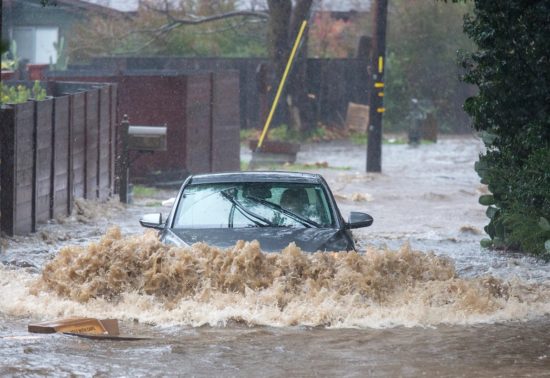In Florida, where hurricanes are a frequent and often devastating reality, understanding hurricane claims is crucial for property owners seeking to protect their homes and livelihoods. Florida hurricane claims arise when the destructive forces of storms, such as wind, rain, and storm surges, cause damage that necessitates filing with insurance providers. As residents prepare for the tumultuous hurricane season, being well-informed about their insurance policies can make a significant difference in recovery efforts. With many policies containing specific exclusions, property owners must navigate the complexities of what their coverage entails to avoid unpleasant surprises when disaster strikes.
For instance, while homeowners may expect coverage for wind damage, they might overlook the fact that flooding often requires a separate flood insurance policy. This lack of awareness can lead to inadequate coverage and unexpected out-of-pocket expenses after a storm. In a state like Florida, where hurricanes can wreak havoc in mere hours, clarity on insurance exclusions and deductibles becomes essential. By arming themselves with knowledge about the intricacies of their policies, residents can take proactive steps to ensure they are fully protected and prepared to face the challenges that accompany hurricane season.
What are Policy Exclusions?
Insurance plans frequently have exceptions—scenarios or circumstances in which the insurance provider will not offer protection. These exceptions are in place to reduce the level of risk that insurance companies are prepared to accept. By stating what is not included in coverage, insurers provide an overview of their obligations. Being aware of these exclusions can help avoid any shocks when processing claims.
Common Exclusions in Hurricane Insurance
Many hurricane insurance policies contain exceptions that are frequently seen in them. One common exclusion relates to damage caused by flooding. Even though hurricanes frequently result in rainfall and storm surges, flood damage is generally only included in a flood insurance policy. Another exclusion that could surprise property owners is wind-driven rain. This situation arises when rain penetrates a building as a result of wind pressure through a breach. Certain insurance policies might not cover damage to structures such as fences or sheds unless these items are specifically mentioned in the policy terms and conditions.
Understanding Deductibles and Limits
Property owners are required to pay deductibles before insurance companies settle claims. For hurricane insurance specifically, there is a deductible in addition to the premium, usually calculated as a percentage of the property’s insured value. This could result in substantial expenses for the property owner. Policy limits set the amount that an insurance company will cover in a claim situation. Being aware of these limits helps property owners avoid surprises during emergencies. Regularly checking and updating these specifics ensures that insurance coverage stays in line with changing circumstances.
The Role of Endorsements
Ratings allow you to personalize your insurance policies by adding coverage or adjusting terms as needed. For example, getting an endorsement for flood protection can fill in the missing parts that regular hurricane insurance doesn’t cover. Likewise, endorsements can broaden protection to include outdoor structures that were previously not included. Policyholders should evaluate their situations to decide which additional clauses could be advantageous for them. Seeking advice from an insurance expert can offer insight into the choices accessible and guarantee thorough coverage.
Steps to Take Before a Hurricane
It’s important to be well-prepared to reduce harm and recover quickly after a hurricane hits. Make sure to go through your insurance policy as a priority. Knowing what is covered and what is not can guide you in making informed choices regarding insurance options or endorsements. Having a list of your possessions makes it easier when filing claims. Taking pictures or videos of your belongings further helps prove that you own them and shows their condition.
Frequently Overlooked Exclusions
Some exceptions may not be obvious at a glance. For example, insurance policies could exclude damages from mold or mildew growth due to moisture exposure. Recognizing these details enables property owners to be proactive by drying and ventilating areas to prevent harm. Moreover, certain insurance policies may not include compensation for damages caused by power outages unless the outage is a result of harm to the property covered by the insurance.
Navigating Claims After a Hurricane
After a hurricane strikes and you need to file a claim with your insurance company, it’s important to act quickly by reporting the damage. To support your claim effectively, you should submit documentation, such as photos, descriptions of the damage, and receipts for any related expenses. Working closely with your insurance adjuster will help facilitate an accurate assessment of the damage and ensure a smooth claims process. Knowing when the insurance company plans to handle claims is important for setting expectations. Keeping in touch with them every step of the way can speed up the process and guarantee that the policyholder gets the coverage they deserve.
Conclusion
Knowing what is not covered by a hurricane insurance policy is crucial for property owners to understand how to deal with insurance coverage intricacies confidently when faced with a storm threat ahead of time. Being informed about exclusions in policies as well as deductibles and limits allows individuals to make knowledgeable choices about their insurance requirements. Additionally, reviewing the recommendations and taking appropriate measures before a hurricane hits can significantly bolster protection levels. Having a good grasp of these aspects ensures that property owners are well-equipped to manage hurricane consequences with assurance and preparedness.



Speak Your Mind